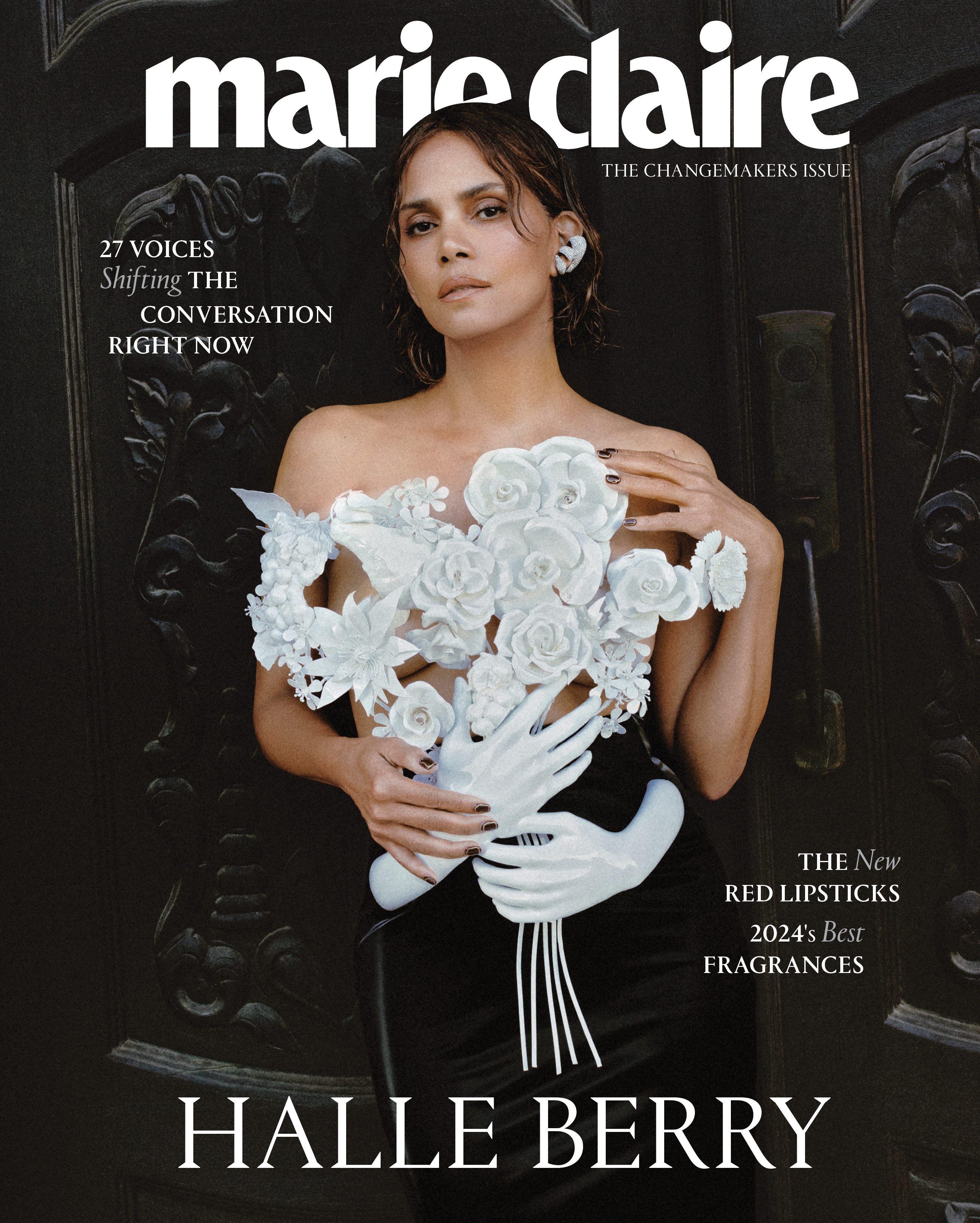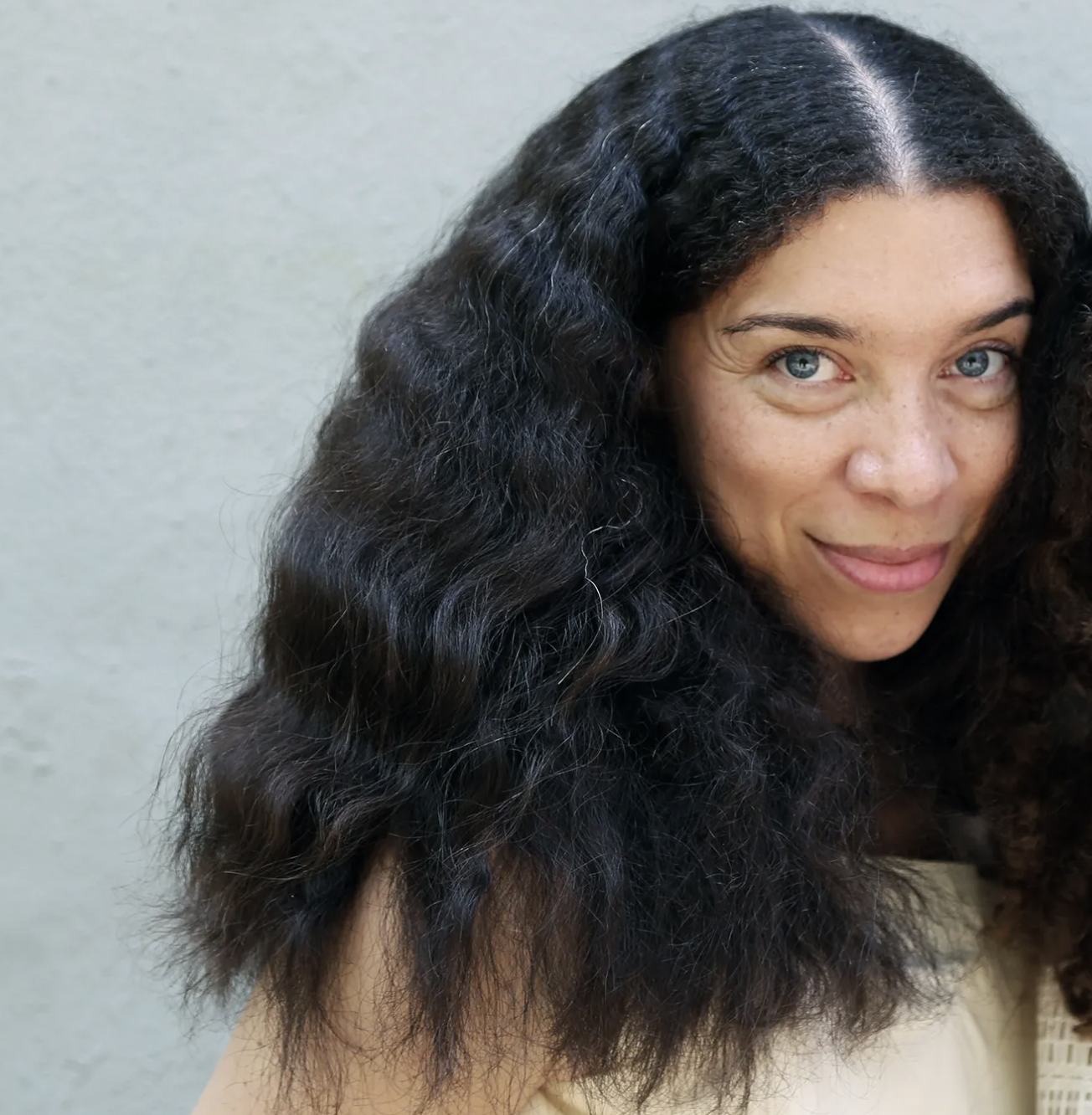My Decades-Long Journey to Curls
\201cMy hair’s growth these years, much like mine, has been stunningly imperfect.\201d
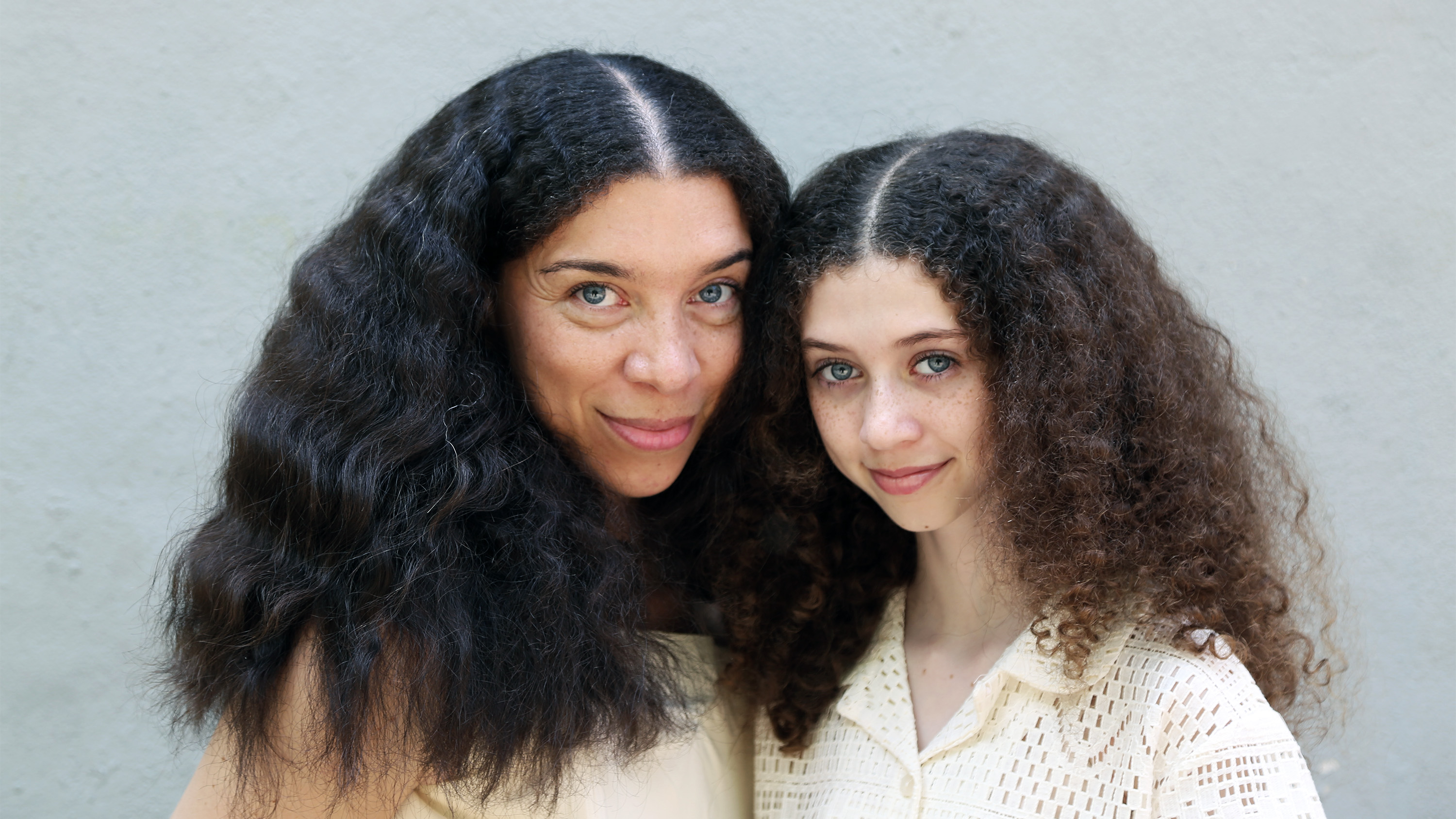
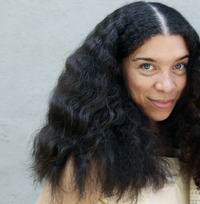
When my daughter was 5—an age many parents will recognize as the peak of their children’s vulnerability to the Disney-industrial complex—she started asking me to straighten her beautiful curly hair. A girl in her Pre-K class had the sort of shiny cornsilk hair that is particularly appealing to young girls; a kind of hair my daughter ironically portmanteau’d into “belong” (blonde and long), and increasingly requested to emulate with each passing day.
“Your hair is beautiful the way it is, my love,” rolled out of my mouth with regularity, and I went about my days buying up little accoutrements that might support this thesis. An 18-by-24-inch poster of Diana Ross for her bedroom wall. Hot pink Denman brushes. Late ‘80s beaded hair ties from Goody, like the ones from my childhood, which slide swiftly out of straight hair but cling lovingly, assuringly, to textured hair.
Because yes, as a woman of biracial white and Afro-Caribbean lineage, my hair is also extremely curly. Not that my daughter would have known this at the time. The hours of labor and management that I put toward beating it into straight, limp submission each week masked even the slightest hint of texture, and she, who will be 11 this fall, had no idea that I had been performing this straightening ritual on myself since almost exactly her age.
Soon after she began asking for straightened hair, Tracee Ellis Ross launched the haircare line Pattern. Earlier that year, we had watched Mixed-ish together, a sort of TV-bonding attempt to help my daughter understand what it was like to grow up mixed race before the internet. As most people understandably do, she immediately fell in love with Ross, and I used this love as a springboard to playing with curly hair products. I ordered the entire line, I hung the marketing materials on her bedroom wall, and I showed her videos of grown women talking about their long journey to embracing and understanding their curls. It was, in its most innocuous form, a propaganda war on my part, fueled by a deep desire for my daughter to feel pride in her curls, her culture, the way her own hair grew out of her head.
Millimeter by millimeter, it grew back—first, with trepidation, clearly demonstrating an absolute lack of trust in my ability to just let it be.
I will always have time to take care of your hair, I told her, as we spent combined hours in the bathroom washing, detangling, leave-in-conditioning, gently drying, over and over. Your hair is beautiful exactly the way it is, I would say, and like most other things I say to her, I realized I was also talking to myself. And slowly—then very suddenly—she grew to love it.
When I was her age, on the cusp of my first relaxer appointment (after a hard won battle with my mom, a homeopath with a thick, majestic mane that even other white women envy), all I wanted to do was be free. My curls were variegated, heretic, like no one ever quite made a decision on what I was supposed to look like before they sent me to this earth. Caring for my hair had caused such discord in my relationship with my mother—and my own self image—that by the point we reached that salon chair I think we were both just trying to escape. I envisioned a result that would make white girls stop telling me my hair looked like Brillo and would finally transform me into the small Mariah Carey I knew myself to be. A butterfly, if you will.
It did not. Instead, it launched a many-decades-long, thankless side hustle of managing and maintaining my own hair to an obsessive degree. I gelled it to my head, pushed down the breakage, spent my after-school job money on product, and flat ironed every last drop of life out of it. I had neither escaped, nor was I free.
Get exclusive access to fashion and beauty trends, hot-off-the-press celebrity news, and more.
I recently learned the term “presentism,” or the tendency to interpret past events through modern day values. It’s important to note that while many women still choose to relax their hair—and all people should feel free to do as they wish—in the mid-to-late ‘90s a regular relaxer, a blowout, and a flat iron, for many, felt like less of a choice and more of a foregone conclusion. It was not an indicator of self loathing as some love to call it today, it was a commonplace, practical, and fashionable solution. Through today’s eyes, when I remember emerging from the salon with fresh lye burns all over my scalp without batting an eye, I am horrified. But while I was in there, the other chairs were never empty. I was one of countless women with textured hair on a quest to flatten ourselves into a manageable oblivion.
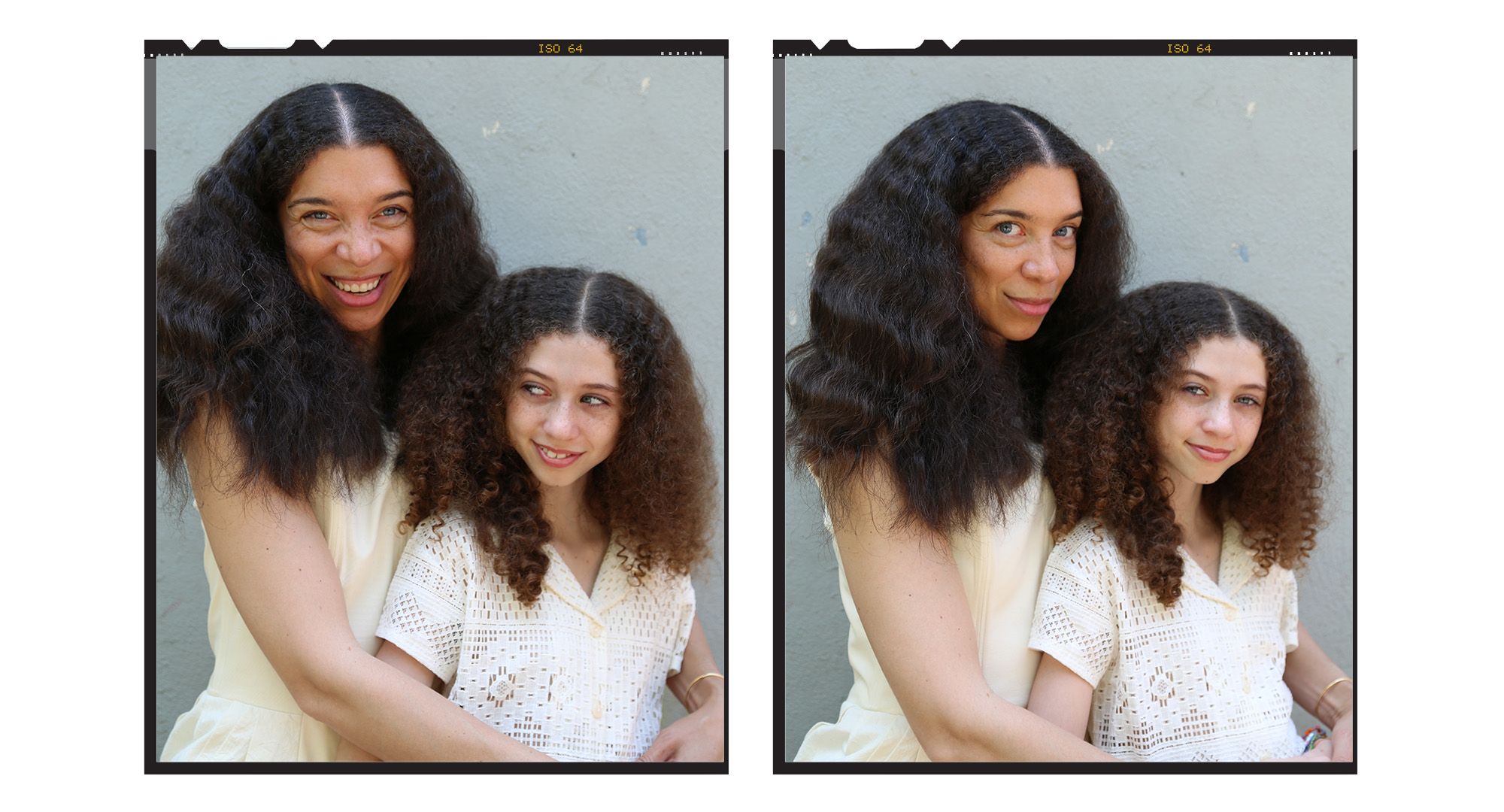
When the natural hair movement started taking hold in the early 2010s, it did cross my mind that my hair was rehabilitatable, and I started experimenting with chopping off some of the lifeless inches at the ends. I considered the idea of going fully natural and all that it entailed: doing The Big Chop, switching up my products, making time and space to find out what my hair actually looked like after all these years. And shortly into this experimentation, I became pregnant with my daughter.
By the time she was born, any dream I had of having the time and space required to explore my natural hair disappeared when I unexpectedly became a solo parent. My weekly wash and straightening meant not having to think about my hair for the rest of the week, allowing me to work and care for a child. And I clung to that wash ritual extra hard, because that one moment each week was my single instance of self care. When everything around me felt very tenuous, there was a surety in the management of my hair. The routine was a life raft.
Two years ago, after successfully training my daughter to embrace and adore her curls, I was ready to let go. So much had happened in order to get me there, including blending families with my partner, which meant I found myself more resourced for time and support than I had ever been before as a parent.
At the start of that summer, I stopped all straightening and heat treatment, cold turkey. At first, there was not much difference; decades of abuse had trained my hair not to step out of line even if offered the chance. Millimeter by millimeter, it grew back—first, with trepidation, clearly demonstrating an absolute lack of trust in my ability to just let it be. I was irritated by how slowly it transformed, even though I realized that when you do nothing but beat something down for the majority of its natural born life it might take a while for it to feel safe enough to reveal its true self again. I realize now I was mostly irritated because its slow growth highlighted my sense of shame in how cruel I have been to my hair all these years.
So I stayed the course. I wish the story was that a few months later my hair became the sort of natural mane that dreams are made of. The process has been, at best, profoundly uncomfortable. Halting treatments on my hair opened the door to confront every insecure feeling I have ever had about my looks, some so vain and embarrassing that I felt like less of a person for even feeling them. In this process, I’ve felt messy and unprofessional, less sexy; like my cloud of hair takes up too much space, like I am not holding up my end of the bargain by having perfect straight hair or perfect curls, but rather some Frankenstein hybrid. I am still too chicken shit to do The Big Chop, and my hair is high maintenance. It demands attention, forethought, care.
Its growth these years, much like mine, has been stunningly imperfect.
In this process, I’ve felt messy and unprofessional, less sexy; like my cloud of hair takes up too much space, like I am not holding up my end of the bargain by having perfect straight hair or perfect curls, but rather some Frankenstein hybrid.
“Look under your straight hair, mommy!!” I started hearing. “You have beautiful curly hair, just like me!” This was my first summer of natural hair. We had arrived on the Amalfi Coast to some of the hottest humidity I’d experienced in my life, the air like soup, thick and boiling. In every year of my life prior, I would have been worried about sweating out my straight hair.
Stepping into the Tyrrhenian Sea was the only relief from the heat, and I waded out to my customary chest-deep position; preserving my straight hair has always been more important than submerging myself in water for recreational purposes. At this moment, I stood with my daughter clinging to me and edged out a little deeper, until it reached my neck, and a little deeper, until it lapped at my chin.
Then a wave came, submerging us both momentarily, and when we were above again, I laughed and wiped my face, my hair soaked. The next wave pulled us out, and we swam, fully submerged, the sea floor nowhere to be seen. The cool, salty water on my scalp felt otherworldly, like being incorporated into nature for the first time ever. The salt burned my eyes, my ears filled with water. I knew I would look a mess afterwards and for the first time in my life it did not matter to me at all.
Two years in, I am still uncomfortable, self-conscious, parading about trying to project a confidence I don’t honestly have. But something amazing has happened. My hair has begun to trust me. Now, down to my jaw, my original curls (all three patterns of them) are back, a little stronger and a little more insistent with every passing week. I’ve traded my heat tools for new gels, conditioners and oils, and I long for my weekly wash as a ritual the same way I used to long for the ritual of straightening.
I will always have time to take care of your hair, I tell myself, in my combined hours in the bathroom washing, detangling, leave-in-conditioning, gently drying, over and over. Your hair is beautiful exactly the way it is. And, years behind my own daughter, I have started to believe it.
This story appears in the 2024 Changemakers Issue of Marie Claire.
Anja Tyson is a twenty year fashion industry vet who specializes in developing purpose and values-driven businesses through communications, culture, and sustainability. In addition to her work in fashion, beauty and wellness, she sits on the advisory boards of non-profits involved in food justice and aid for families and children. She is a writer and a mother, and her mail gets delivered to Manhattan but her heart will always live in Brooklyn.
